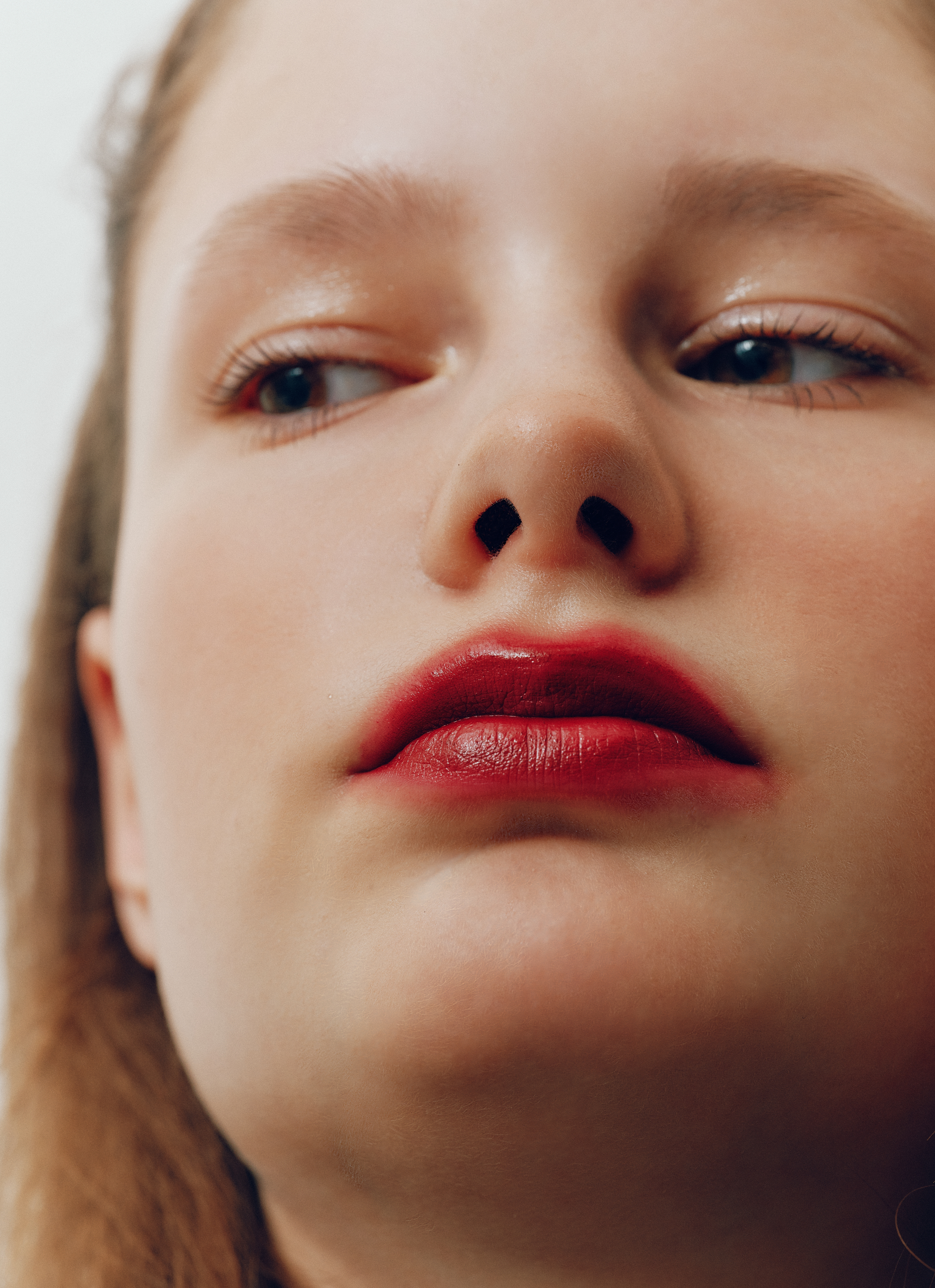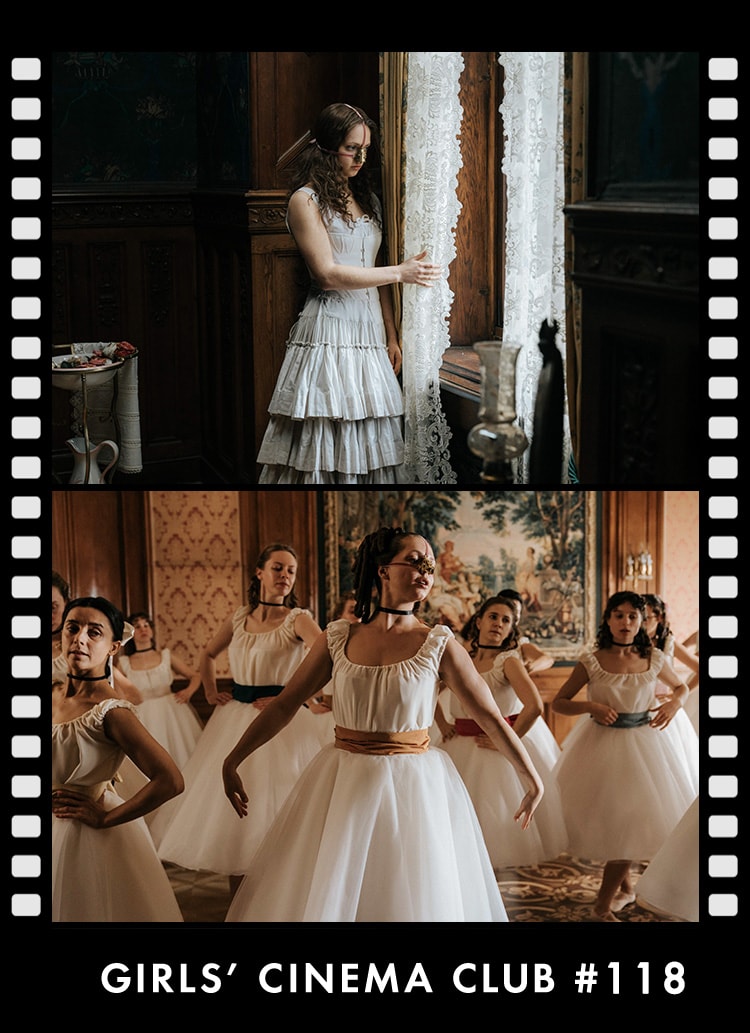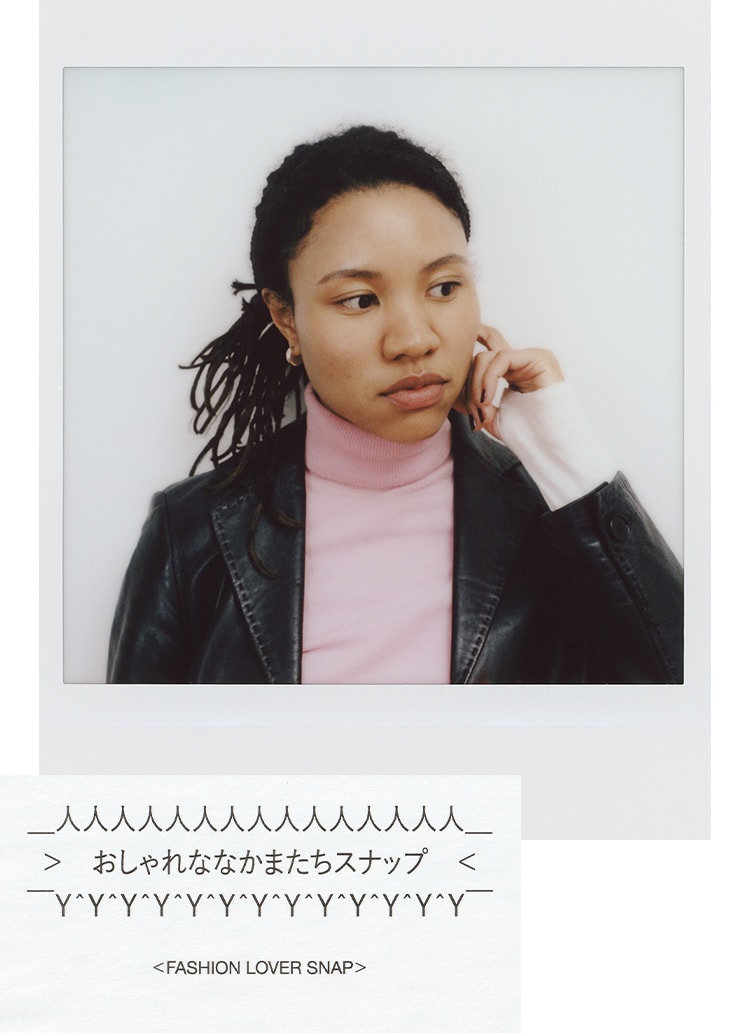City Country City" is an anonymous brand that does not disclose its designer, but has been steadily increasing its presence. In order to find out what the brand is really like, we have started a Series of interviews with creators who have been close friends with the brand since its inception. We will be looking into the contents of this mysterious brand from all angles.
The first person to appear in the memorable first issue is vintage buyer Michihiko Kurihara. His own store "Mr. Clean" in Oku-Shibuya handles this brand, and we are curious about its unexpectedness. We asked Mr. Kurihara to talk about the relationship between the two, as well as the compatibility between vintage clothing and "City Country City.
It has a Harajuku-like scent of a bygone era, including a mysterious part.
How did you start carrying "City Country City" at "Mr. Clean"?
Kurihara:I run a vintage clothing store, but I often wear new clothes as well. So I am always looking for things I want to wear, but since I spend about half of the year in the U.S., it is difficult to go to exhibitions in Japan due to timing conflicts. At that time, I knew the people at "City Country City" and they asked me if I would be interested in working with "Mr. Clean. I was asked if I would be interested in working with "Mr. Clean.
That's when I went to see them. I knew what they had made in the past, and I thought the items at "City Country City" were simply great, as their background in the Harajuku area was clearly expressed in the items.
Have you always worn items other than vintage clothing?
Kurihara:I didn't wear much when I was younger. I was aware of the "Lost Hills" brand when it opened in Harajuku in 2000, and I think I passed by them on the street, but I didn't really interact with them.
They were a very popular brand, and of course I knew the appeal of their items, but at the time I could only afford to buy secondhand clothes for financial and other reasons. Later, I made contact with them at a friend's vintage clothing store's anniversary party, and we began to interact with each other from there.
When did you start wearing clothes other than vintage clothes?
Kurihara:Around my mid-twenties? I had worn a lot of vintage clothing, and by that time, friends of the same age had started their own brands, so I began to wear the clothes they made. I think that's why I started to wear clothes made by them. I think that secondhand clothes are just secondhand clothes.
So that's how you came to wear various brands of clothes. What do you find attractive about City Country City's clothes?
Kurihara:The most important thing is that they are easy to match with old clothes. For some reason, my fashion is based on vintage clothing, so it is easy to match with that. The main reasons are that they are made by people I like, they are simply attractive as objects, and they are linked to the mood of the clothes I want to wear now. Personally, I am seeing a resurgence in what I used to wear in the 90s and 2000s, so it is easy to match with those kinds of clothes.
So you wear it often?
Kurihara:I wear it quite a bit. To be honest, I don't have the stereotypical "you have to wear this with this kind of clothing" thinking that used to be a fixed concept in the past.
Also, there are not a few brand-name clothes that I buy new that I no longer wear at the end of the season. This is because they reflect the trends of the time, and such items are still attractive. In the case of "City Country City," I don't feel that these items are seasonal in a good sense, and I think they are items that can be worn for a long time.
I think it has an ageless appeal.
Kurihara:I sell secondhand clothes because I like things that retain their value. Good things are good things, and they will never change.
Nowadays, the barrier between secondhand and new clothes has disappeared, and there are more and more select stores that sell secondhand clothes and secondhand stores that sell new items.
Kurihara:I didn't think too much about it. I was approached, had a chance to see the products, and decided to purchase them because I liked them. I value that kind of connection.
How have the customers responded?
Kurihara:Even now, I am often told that people mistake it for my own brand (laughs).
(laughs). I think it is the "C" in "Mr. Clean.
Kurihara:I was told that quite a bit, too (laughs).
But, in a sense, you are not uncomfortable with it.
Kurihara:I guess that's the way it is if you think about it. It is frustrating that I cannot say who is doing it.... However, including such mysterious aspects, there is a scent of Harajuku-like atmosphere from somewhere. The collaboration with "TRATTORIA LA VERDE" is one example, but you are very good at giving off that kind of scent. In a good sense, it does not look like a designer brand.
The price of used T-shirts has skyrocketed from 3-4,000 yen in the past to an average of 7-8,000 yen now. So the price is not much different from a new T-shirt. I think people who usually buy used clothes can easily afford them.
Kurihara:Also, I think there are people who only buy clothes at used clothing stores. It is interesting that we can propose something other than used clothing to these people. In the same way that it has become commonplace for select stores to sell secondhand clothing, I hope that selling new clothes at secondhand clothing stores will broaden customers' choices.
I hope that the fact that it is handled by "Mr. Clean" will, to some extent, give people a sense of security about the brand.
Did you have confidence in your chances of winning, or in your ability to resonate?
Kurihara:To be honest, that was an unknown quantity, but I simply thought it sounded interesting. We only deal in used clothing, and we are not a store that specializes in anything. Of course we serve our customers, but to put it bluntly, I think our products are easy to sell even if they are left alone. There are many customers who first pick up our products thinking they are used clothes.
What do you expect from City Country City in the future?
Kurihara:The year before last? I provided dead stock sweatshirts and printed the "City Country City" logo on them in silk. I would like to do something like that again. It might be difficult, though, because there are materials involved. It would be nice if I could help in the creation of things again.
I heard that when you sold them on the web, they sold out in just a few seconds. They are all one-of-a-kind, with different sizes, colors, and print positions.
Kurihara:That is also a Harajuku feeling. It resonates with people who resonate with it. I would like to do that again.
Michihiko Kurihara / Vintage Buyer
Born in 1977, Mr. Clean Yokohama was in charge of buying at a vintage clothing store in Harajuku from 1995 to 2010, and became independent in 2011. He started wholesale of vintage clothing, launched an e-commerce site, and opened an actual store "Mr. Clean Yokohama" in 2018. 2020, he moved the store to Tomigaya, Shibuya-ku, and changed the name to "Mr. Clean". He is a vintage buyer who is supported not only by the vintage scene but also by the fashion scene as a whole.
Instagram:@michihikokurihara
CITY COUNTRY CITY
Mr. Clean
Address: Settle MS Yoyogi Koen 1F, 1-35-4 Tomigaya, Shibuya-ku, Tokyo
Phone: 090-2206-1755
@mrcleantomigaya


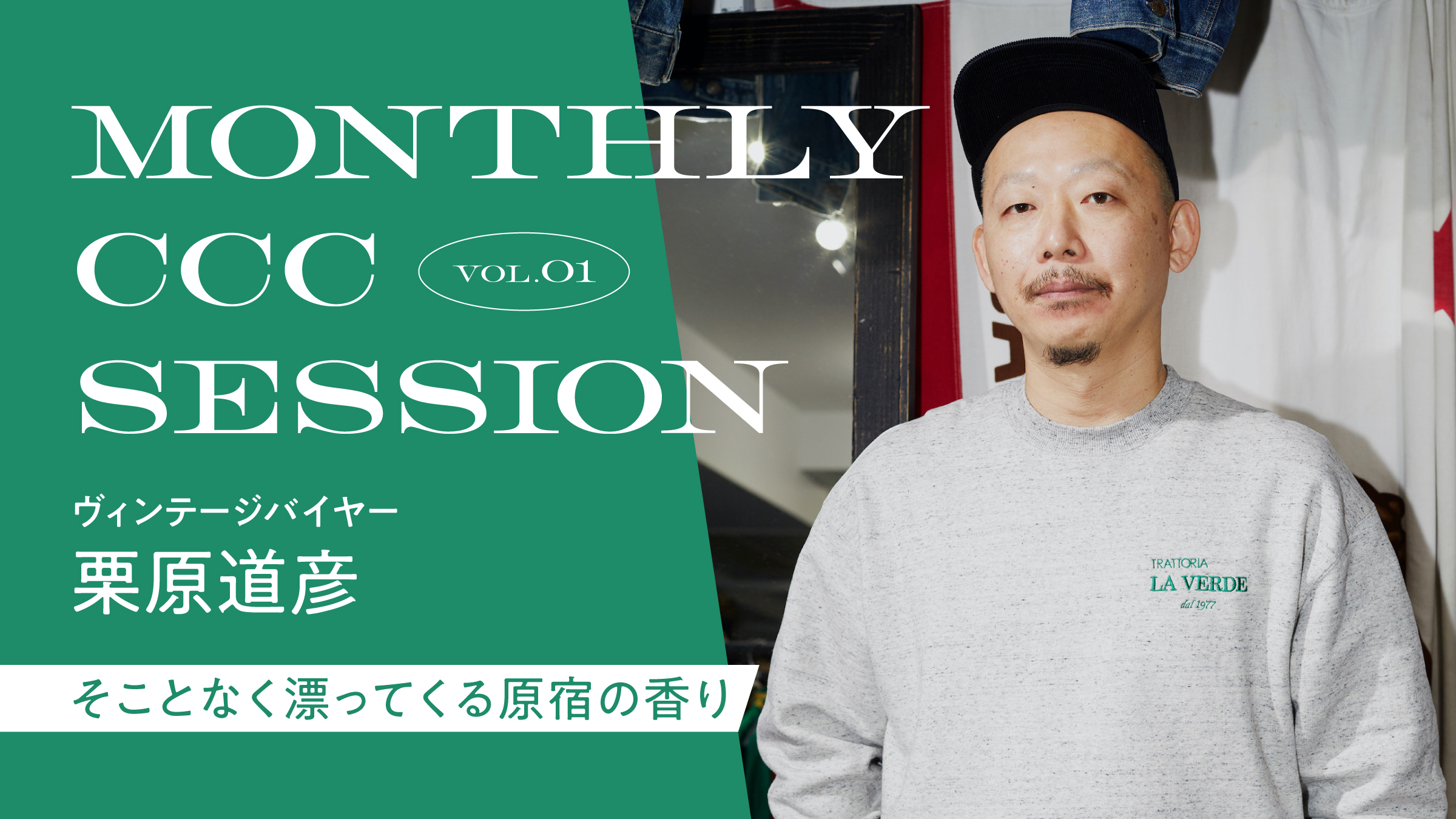

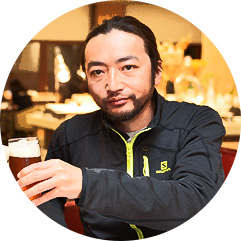
![Serials 【MONTHLY CCC SESSION] VOL.14 JOE (Surplus Research) "The Essence of Collaboration Created by Friendship](https://www.houyhnhnm.jp/wp-content/uploads/2025/06/1a1494703512f0971b89e1ff60cfcea4-700x394.jpg)
![Serials 【MONTHLY CCC SESSION] VOL.13 Yuta Kaji (Stylist) "A Hawk with a Talent Hides Its Claws](https://www.houyhnhnm.jp/wp-content/uploads/2025/02/202211864aad15f85cf8e25454659494-700x394.jpg)
![Serials 【MONTHLY CCC SESSION] VOL.12 Ronnie Jordan / WAR "Inspiration Beyond Music](https://www.houyhnhnm.jp/wp-content/uploads/2025/01/panel_monthly_ccc_session_2400_1350_b_lo-700x394.jpg)
![Serialized 【MONTHLY CCC SESSION] VOL.11 Daisuke Araki "A brand with irreplaceable experience](https://www.houyhnhnm.jp/wp-content/uploads/2024/11/panel_monthly_ccc_session_2400_1350_b-1-700x394.jpg)
![Series 【MONTHLY CCC SESSION] VOL.10 Kyohei Fujihashi (BEAUTY&YOUTH UNITED ARROWS) "A sense of exuberance that comes from having one's feet planted in fashion](https://www.houyhnhnm.jp/wp-content/uploads/2024/09/panel_monthly_ccc_session_2400_1350_a-700x394.jpg)
![Series 【MONTHLY CCC SESSION] VOL.09 Toby Feltwell, C.E. "We Only Know How to Do It That Way"](https://www.houyhnhnm.jp/wp-content/uploads/2024/07/panel_monthly_ccc_session_2400_1350_b-700x394.jpg)

